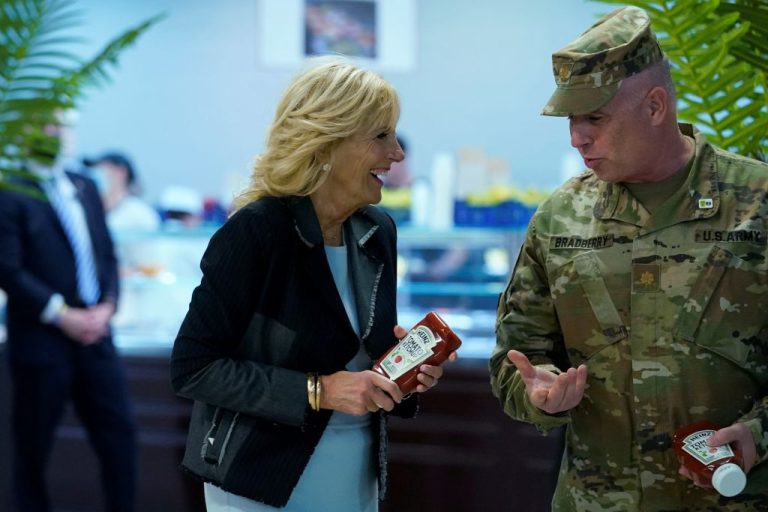The United States Army has advised soldiers who are struggling to make ends meet on their current salary amid the nation’s inflationary crisis to take advantage of a food stamps program as a solution.
Reported by Fox News on Sept. 13, the Army “released guidance” advising personnel to sign up for Supplemental Nutrition Assistance Program (SNAP), which is more commonly known as food stamps.
The guidance, penned by Sergeant Major Michael Grinston, was frank in that “some Soldiers and their families are finding it harder to get by on the budgets they’ve set and used before.”
MORE ON THE ARMY AND FOOD STAMPS
- Florida Judge Grants Marines Religious Exemption to DOD COVID Vaccine Mandate
- After Defrauding Food Stamp Program Out of $2.26 Million, Two Women Head to Prison
- UK Supermarket Starts Issuing Microloans to Pay for Groceries
“Soldiers of all ranks can seek guidance, assistance, and advice through the Army’s Financial Readiness Program,” he added.
News Nation went into more details on the letter penned by Grinston, which stated, “SNAP is a U.S. government program that provides benefits to eligible low-income individuals and families via an electronic benefits transfer card that can be used like a debit card to purchase eligible food in authorized retail food stores.”
Success
You are now signed up for our newsletter
Success
Check your email to complete sign up
“Service members and their families may be eligible. To determine qualification, visit the SNAP website or call the SNAP information line,” it added.
SNAP eligibility and applications are not processed through the Army, but done at the State level, however.
The U.S. Department of Agriculture already has a section on its website specifically targeting “military and veteran families” to provide guidance on how to utilize SNAP.
“You served our country proudly and honorably, and we want to inform you that through our nutrition programs, you may be eligible for assistance to ensure you, your family, and fellow veterans have the assistance to ensure you have nutritious meals,” it reads.
In a portion devoted to helping prospects determine eligibility, the website clarifies, “To be eligible, households must meet income tests. Combat pay, Hostile Fire pay, and Imminent Danger Pay are not counted as income for SNAP. All other pay and allowances are counted as income.”
In an article on the topic, Southern Maryland Chronicle quoted American Enterprise Institute analyst Mackenzie Eaglen as explaining that soldiers being underpaid is simply widespread, “Based on the Pentagon’s own data, 24% of enlisted personnel are food insecure.”
“While food stamps are a Band-Aid, they’re also an admission that basic pay for enlisted troops and their families is too low – further exacerbated by unyielding inflation causing paychecks to shrink more,” Eaglen added.
She told the outlet that as a solution, the Army should “abandon rosy inflation assumptions, boost basic pay, and request a defense topline above inflation each year so forces and families have predictability and stability.”
In a Sept. 5 piece published in the Wall Street Journal, Eaglen, along with co-author John Ferrari, stated that the Pentagon was calculating inflation at 3.9 percent using a GDP-based index.
Real inflation data calculated by the Bureau of Economic Analysis is thought to be close to 9 percent, the duo noted.
A recruitment website for the Army openly lists what soldiers make, showing a full-time enlisted E1 Private has a base pay of $21,999.60, before bonuses and benefits.
A second Army website states that, “Active duty Soldiers serve in the Army 24 hours a day, seven days a week for the duration of their service commitment.”
“Think of it as working a full-time job,” they state.
By contrast, the full-time minimum wage in the State of California is $15.00 per hour, according to the Department of Industrial Relations.
Based on a 40-hour work week, a minimum wage Californian would gross nearly $29,000 before benefits and bonuses, sans missed time, while maintaining a normal life.
Russian media outlet Sputnik took full advantage of the opportunity to draw a connection between the U.S. Army and McDonald’s, which likewise told struggling employees to go get food stamps in 2013.
















